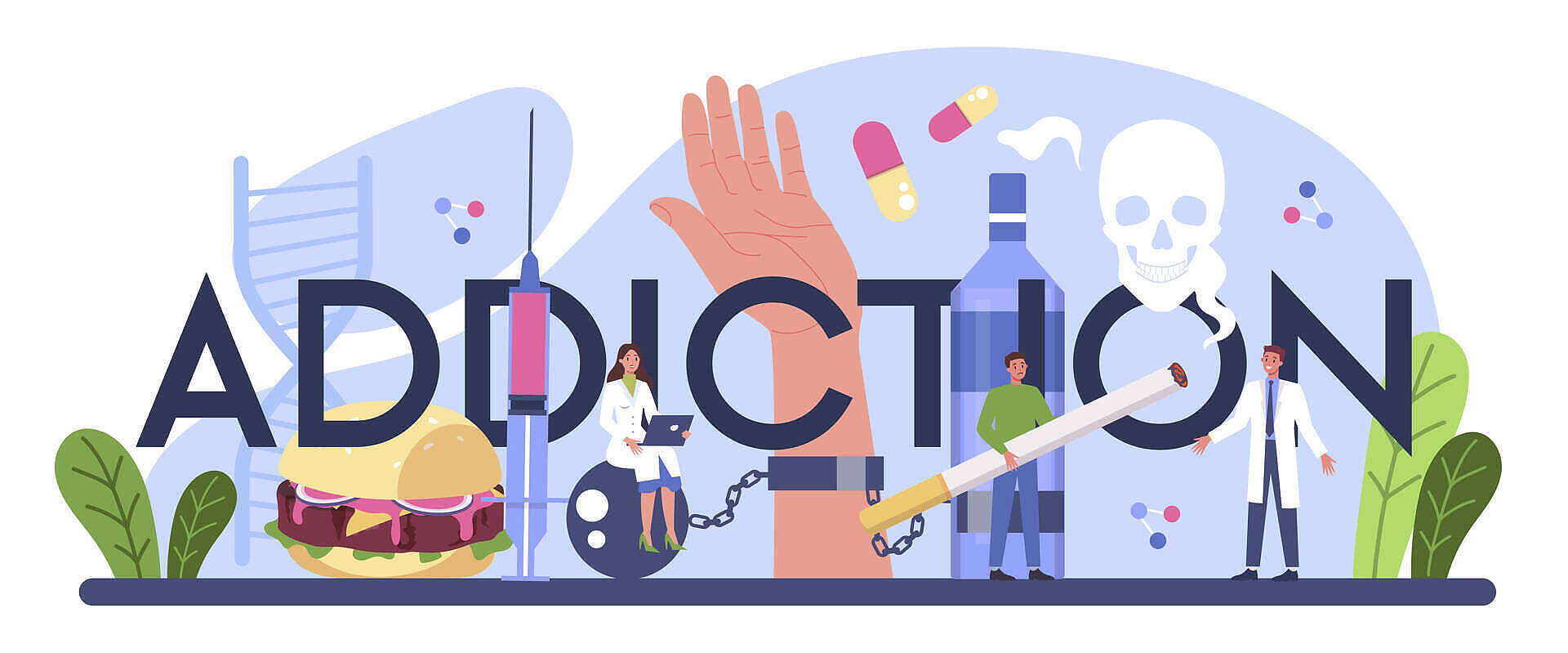
Is Cocaine Addictive? The Connection Between Use and Dependence
Cocaine, a potent stimulant derived from coca plant leaves, has long been a subject of concern in public health circles. This article tackles the crucial question: Is cocaine addictive? We’ll explore the relationship between cocaine use and dependence, shedding light on why this understanding is vital for both individual well-being and broader public health efforts. By examining the effects of cocaine on the brain and body, we aim to provide clear insights into its addictive potential and the risks associated with its use.

Understanding Cocaine: What It Is and How It Works
Cocaine is a powerful stimulant drug derived from the leaves of the coca plant, native to South America. It comes in several forms, each with its own method of use. The white powder form is typically snorted, while crack cocaine – a crystallised version – is usually smoked. Some users also dissolve cocaine in water and inject it directly into their bloodstream. Injecting cocaine results in a more intense but shorter experience compared to other methods like snorting or smoking, and it significantly increases the risk of overdose.
But what makes cocaine so potent? The answer lies in how it affects our brain chemistry. Cocaine primarily works by interfering with the brain’s dopamine system. Normally, dopamine – a neurotransmitter associated with pleasure and reward – is released and then reabsorbed by neurons. Cocaine blocks this reabsorption, causing dopamine to build up in the spaces between neurons. This flood of dopamine is responsible for the intense euphoria users experience.
It’s this powerful effect on the brain’s reward system that forms the basis of cocaine’s addictive nature. By artificially boosting dopamine levels, cocaine can create a cycle of craving and use that’s difficult to break. Understanding this mechanism is crucial to grasping why cocaine is considered highly addictive and why casual use can quickly spiral into dependence.
Why Is Cocaine Addiction So Powerful?
Cocaine’s addictive nature stems from its profound impact on the brain’s reward system, particularly its effect on dopamine. When someone uses cocaine, it prevents the reabsorption of dopamine in the brain, leading to a buildup of this feel-good chemical, especially in an area called the nucleus accumbens. This flood of dopamine creates an intense feeling of euphoria, effectively rewiring the brain to associate cocaine use with pleasure.
This powerful reinforcement is at the heart of cocaine’s addictive potential. The brain quickly learns to crave the drug, driving users to seek out cocaine again and again. So, is cocaine addictive? Absolutely – its ability to hijack the brain’s reward system makes it one of the most addictive substances known.
But the story doesn’t end there. With repeated use, the brain adapts to these surges of dopamine. Users often find they need more cocaine to achieve the same high, a phenomenon known as tolerance. This escalation can quickly lead to physical and psychological dependence.
As tolerance builds and dependence sets in, users may find themselves caught in a cycle of addiction. They might continue using cocaine despite negative consequences, struggle to cut down or experience withdrawal symptoms when not using. These are all hallmarks of addiction. The development of tolerance and dependence leaves little doubt – cocaine is indeed highly addictive.
It’s not just about willpower; cocaine fundamentally changes how the brain works, making addiction a very real and serious risk.
Long-Term Neurobiological Effects of Cocaine Use

Cocaine addiction isn’t just about short-term highs; it fundamentally alters the brain’s structure and function over time. One key player in this process is a protein called ΔFosB. With repeated cocaine use, ΔFosB accumulates in the brain, acting like a molecular switch that helps transition casual drug abuse into full-blown cocaine addiction. This protein persists long after the high subsides, influencing behaviour for weeks or even months.
The changes don’t stop there. Chronic cocaine use actually rewires the brain, causing neurons to grow new branches (dendrites) and connection points (spines). It’s as if the brain is physically restructuring itself to accommodate the drug. These new neural pathways strengthen addiction-related behaviours, making it increasingly difficult for cocaine users to resist cravings or break the cycle of substance abuse.
Cocaine’s impact extends beyond the reward centre, affecting other crucial brain regions. The hippocampus, involved in memory formation, and the amygdala, which processes emotions, are both altered by long-term cocaine use. These changes can lead to powerful associations between environmental cues and drug use, triggering intense cravings even years into recovery. This highlights why cocaine is considered a highly addictive drug.
Mixing cocaine with other substances, such as cutting it with fillers for profit or combining it with powerful drugs like fentanyl, significantly increases the risks associated with cocaine use. The dangers of polydrug use, particularly when cocaine is mixed with alcohol or other drugs, lead to severe health risks and higher chances of overdose. This practice exacerbates the already profound neurobiological changes caused by cocaine, making the addiction even more dangerous and difficult to treat.
The effects of cocaine on these brain regions contribute significantly to drug-seeking behaviour and make it challenging to treat cocaine addiction. Users may find themselves caught in a cycle where taking cocaine becomes a compulsive behaviour driven by these neurobiological changes.
So, is cocaine addictive? The profound neurobiological changes we see in long-term users provide a resounding “yes.” Cocaine doesn’t just temporarily alter mood; it rewrites the brain’s operating system, creating lasting changes that reinforce addictive behaviours. This is why cocaine addiction treatment often requires a comprehensive approach that addresses both the physical and mental health aspects of addiction.
Understanding these deep-seated neurological impacts underscores the challenges of overcoming cocaine addiction and highlights the importance of early intervention. It also emphasises why professional help, such as a free addiction assessment, can be crucial for those struggling with cocaine misuse or addiction.
Signs and Symptoms of Cocaine Dependence
Recognising cocaine addiction can be crucial for early intervention. Key signs include intense cravings, needing more cocaine to achieve the same high, inability to quit despite negative consequences, and experiencing withdrawal symptoms when not using.
Several factors can increase the risk of developing cocaine addiction. These include a family history of substance abuse, easy access to cocaine, and past trauma. Mental health problems can also play a role, as some individuals may turn to cocaine use as a form of self-medication. Additionally, many cocaine users also consume other drugs like alcohol, marijuana, or synthetic opioids, which exacerbates the risks of overdose and adverse health effects.
Understanding these risk factors helps explain why some people are more vulnerable to cocaine addiction than others. It’s important to note that anyone taking cocaine regularly is at risk of developing dependence, regardless of their background.
If you or someone you know is showing these signs or falls into high-risk categories, it may be time to seek a free addiction assessment. Remember, cocaine addiction can be treated, but early recognition and intervention are key to successful recovery.
Managing Cocaine Withdrawal and Treatment Options
The journey from cocaine use to recovery often begins with an intense “comedown” followed by withdrawal. When someone stops taking cocaine, they may experience severe fatigue, depression, anxiety, and intense cravings. These cocaine withdrawal symptoms underscore the drug’s addictive nature and can make quitting extremely challenging.
For those addicted to cocaine, professional help is often necessary. Cocaine addiction treatment typically involves a combination of approaches:
Inpatient Treatment This intensive option provides round-the-clock care, including medically supervised detox, therapy, and preparation for long-term recovery. It’s particularly beneficial for those with severe addiction or who abuse cocaine alongside other substances.
Outpatient Programs These offer more flexibility, allowing individuals to maintain daily responsibilities while receiving treatment. They’re often suitable for those with milder cases of cocaine abuse or as a step-down from inpatient care.
Therapeutic Approaches Cognitive Behavioral Therapy (CBT) helps individuals identify and change thought patterns that lead to cocaine use. Motivational Enhancement Therapy can boost commitment to recovery. Support groups like Cocaine Anonymous provide peer support crucial for long-term sobriety.
Medication Research While there’s no approved medication to treat cocaine addiction, research is ongoing. Drugs like disulfiram (used to treat alcohol dependence) and certain psychostimulants show promise in reducing cocaine use. The concept of a cocaine vaccine is also being explored to prevent the drug from reaching the brain.
It’s important to note that treating cocaine addiction often involves addressing underlying mental health problems. Many people who abuse cocaine have co-occurring disorders that require integrated treatment for both substance use and mental health issues.
If you or someone you know is struggling with cocaine use disorder, don’t hesitate to seek help. A free addiction assessment can be the first step towards recovery. Remember, while cocaine is a highly addictive drug, addiction can be treated successfully with the right support and interventions. Recovery is challenging, but it’s absolutely possible.
Conclusion
Is cocaine addictive? The answer is a resounding yes. From the profound neurobiological changes it causes to the severe withdrawal symptoms experienced by users, cocaine’s addictive nature is clear.
We’ve seen how cocaine use can lead to significant alterations in brain structure and function, particularly in regions associated with reward, memory, and emotion. These changes contribute to the development of cocaine addiction and make it incredibly challenging for individuals to quit, even when faced with serious consequences.
The risk factors we discussed, such as genetic predisposition and environmental influences, highlight why some people may be more vulnerable to cocaine addiction. However, it’s crucial to remember that anyone who uses cocaine regularly is at risk of developing dependence.
Understanding cocaine’s addictive potential is vital for both prevention and treatment. For those not yet involved with the drug, this knowledge can serve as a powerful deterrent. For individuals already struggling with cocaine use, recognising the addictive nature of the substance is often the first step toward seeking help.
If you or someone you know is battling cocaine addiction, remember that recovery is possible. While the journey may be challenging, numerous treatment options are available, from inpatient programs to outpatient therapy and support groups. These approaches can help individuals overcome addiction and reclaim their lives.
Don’t hesitate to reach out for professional help. A free addiction assessment can be an excellent starting point to determine the most appropriate treatment path. With the right support and commitment, it’s possible to break free from cocaine addiction and build a healthier, drug-free future.
Remember, cocaine addiction is a complex issue that affects both physical and mental health. It’s not a matter of willpower alone, but a serious condition often requiring professional intervention. By seeking help, you’re taking a crucial step towards recovery and a better quality of life.

